Even among the myriad dazzling species of Africa, this bee-eater stands out with its outrageous plumage hues. But which bee-eater, exactly...? BILL NAYLOR explains how the carmine bee-eater has now become two, and summarises the challenges of keeping these beauties in aviculture.

THE majority of bee-eater species have colourful plumage, but the most outstanding is the carmine. Its bright blue head and rump contrasts with the predominant varying shades of plum and pink. It is the most gregarious of the bee-eaters, and also one of the noisiest. A cloud of pink, swooping, chattering carmine bee-eaters is one of Africa’s most impressive avian sights.
South v North
This species occurs in two separate populations more than 1,000 miles apart in southern and North Africa. Considering they don’t interbreed and have different plumage (the northern birds have a blue throat, the southern birds a bright pink throat), it’s surprising it took so long to recognise them as two distinct species.
Previously known as the southern race of carmine bee-eater (Merops nubicus nubicoides), this population is now officially confirmed as the southern carmine bee-eater (M. nubicoides). The northern bird (M. nubicus) has the larger range, extending from east to west Africa and northwards, approaching the Sahara. Both species are migratory; in winter the northern species moves south, and the southern species moves north.
Avicultural stories
The specialised diet of winged insects is the reason only about eight (mostly African species) out of the 27 species of bee-eaters have been kept in captivity. Captive breeding has, in general, been infrequent. In the 1970s the little bee-eater (M. pusillus) and white-fronted bee-eater (M. bullockoides) were bred in the UK at the short-lived Winged World at Heysham Head in Lancashire.
Bu hikaye Cage & Aviary Birds dergisinin January 31, 2018 sayısından alınmıştır.
Start your 7-day Magzter GOLD free trial to access thousands of curated premium stories, and 9,000+ magazines and newspapers.
Already a subscriber ? Giriş Yap
Bu hikaye Cage & Aviary Birds dergisinin January 31, 2018 sayısından alınmıştır.
Start your 7-day Magzter GOLD free trial to access thousands of curated premium stories, and 9,000+ magazines and newspapers.
Already a subscriber? Giriş Yap
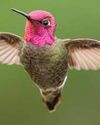
The World's Best-Known Hummingbird?
Intensively studied, the gem-like Anna’s hummingbird is a welcome visitor to the gardens of America’s most populous state: California. Bill Naylor investigates its life history
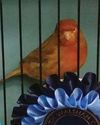
The charm of the English Cinnamon
Despite its long and complicated history, the true Cinnamon canary is still with us – in the hands of a tiny group of breeders. DONALD SKINNER-REID reckons it deserves wider appreciation
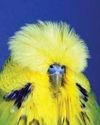
Spangles: a personal overview
FRED WRIGHT relates a budgie story of over-exploitation, consequent problems and abundant potential for the future

New converts to old breeds
Old and rare canaries have a reputation for adding fresh interest and challenge to the hobby. PETE HOOK and NICK JOY agree, and explain the birds’ charm to Dave Brown

Themed aviaries are a hit with the public at annual Stafford show
DECORATIVE AVIARY DISPLAYS from a CBS and an online bird keeping advice group were voted in the top three by visitors for the inaugural Stafford Aviary Competition.
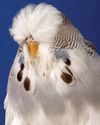
Pieds with potential
More than just a lesser variety, the dominant pied will introduce challenge and change into most studs, reckons CLIVE WAKEMAN. Here he discusses pairings to try and others to avoid

Club News
Welcome to the club and show pages – the bit that’s all about you Results: convention, specialist & rare and Breeder of the Year
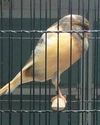
Canaries Month by Month:
With Christmas around the corner, BRIAN KEENAN is well into his winter programme, and reckons he might deserve a nice outcross
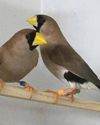
Smart Choice, Docile Nature
Dave Brown welcomes the masked grassfinch to his birdroom and shares advice on this lovely Australian species
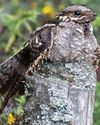
The truth about the ‘flying toad'
Odd local names and weird superstitions can’t hide the beauty and elegance of the nightjar, a species that has made a fascinating subject in a few zoo collections, reveals BILL NAYLOR